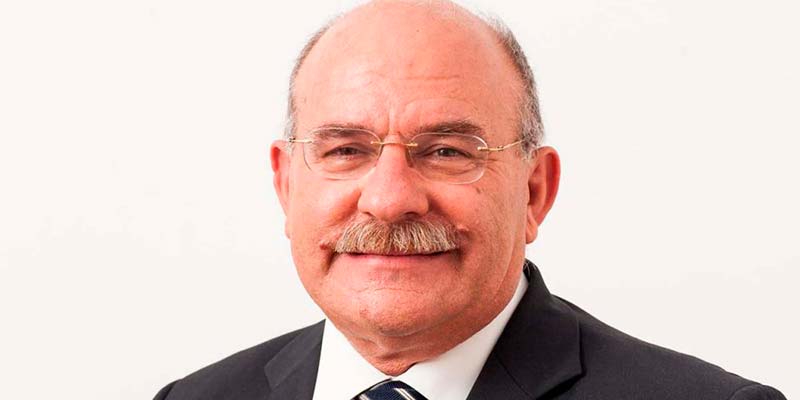The Algarve is known to be one of the major touristic hubs in the European continent, welcoming every year millions of visitors. Castro Marim, located in Portuguese Algarve was heavily affected by the Covid-19 pandemic. “The unemployment is growing and reaching unprecedented values, it’s necessary above all to increase coronavirus testing to control the situation and to avoid the worst.” These are the words of Francisco Amaral, Mayor of Castro Marim.
He speaks with Travel Tomorrow about his view on upcoming opportunities on the remaining challenges of this pandemic and the opportunities of a post-covid period.

1. Algarve has the highest level of vulnerability to the socio-economic effects of the crisis caused by the Covid-19 pandemic among Portuguese regions, what are the main consequences of this crisis in the region?
The consequences have been very negative. Restaurants and hotels are closing and unemployment is overwhelming. Castro Marim’s city council is helping some families by donating supermarket vouchers and even paying part of their house rent. Also, we exempt small businesses and restaurants from fees, such as water, sanitation, and solid waste fees.

2. What measures is the city council taking to help boost tourism?
The Algarve has been the country’s pioneer in mass testing, which makes it possible to detect Covid-19 infections at an early stage, preventing its spread. This periodic mass testing, carried out every 15 days, is essential for the recovery, especially concerning the small and medium companies in the HORECA channel, this way we can promote an image of safety, so necessary to tourism at this moment. We are on the border with Spain, so we need to promote that image so we don’t lose these tourists. There was a phase in which we tested 1500 people and we were able to break some transmission chains.
In the recovery that we are now facing, we also want to promote local gastronomy, mainly through festivals such as Cataplana or Caracol Festival. Support for entrepreneurs, in addition to those already mentioned, exemption from water, sanitation, and solid waste tariffs, also includes exemption from tariffs for esplanades.

3. It is the countryside that has the most problems considering the combination of three factors that contribute to a bigger exposure to the global risk of economic contraction, can you detail these factors?
There are three factors that I highlight, the non-existence of employment, the issue regarding territorial planning, and the non-existence of a mobile network and internet coverage in various mountain areas. The territorial planning law should be applied depending on the area of the country and not for the country in general. There should be a special view of the countryside, to help the settlement of young people. I usually say that we have to carry people who want to invest and stay in the interior of the country. The non-existence of jobs in these areas, does not help the investments in the area, nor does the fact that there is no mobile network and internet, so necessary today.

4. Unemployment rose 41% in March 2020 compared to the same period last year, 71% of jobs were affected due to the prevalence of the tourism sector in the region, how is unemployment today?
Unemployment is worst, it rose between 200 to 400% percent. That is why it is increasingly necessary to transmit to our tourists an image of safety and confidence through hygiene measures that we all know, like testing, and that whoever enters Portugal should always be accompanied by their vaccination report or be tested upon arrival.
5. The vaccination program has been the subject of controversy. In Castro Marim has it been going as expected?
Vaccination has been normal. People over 80 and others over 50 with cardiovascular and respiratory diseases are currently being vaccinated.
The AstraZeneca vaccine issue made it worse because vaccines are going to be lacking and I no longer believe in group immunity until the summer.

6. Prime Minister António Costa announced on March 8 the plan to ease lockdown in Portugal. Do you agree with the way it will be done?
There is a point that I disagree with because it makes no sense, which is not allowing regular walking because this is fundamental to the mental health of the Portuguese, only hygienic walks are allowed.
Another example, I fish as a hobby, and fishing is also prohibited when it is an activity that can perfectly be done alone. It doesn’t seem logical to me.
The lack of definition has to be accompanied by mass testing to discover possible transmission chains that are still in the initial phase, but this makes perfect sense, it is in testing that we must bet.
7. Knowing the importance of the British market to Algarve, your region received news of the reopening of the air corridor with the United Kingdom. Many consider that it’s time for Algarve to diversify its tourist market and reduce this dependency, can you comment?
The British market will always be important for Algarve, which does not mean that other markets are not explored. But always striving for quality and pandemic safety.
8. What are the expectations of recovery for this year, namely for the summer period?
The main measures must pass through the government and must provide vaccine bulletin upon entering the country, tests for those who have not had a vaccination, and not neglecting hygiene measures. Municipalities must test every 15 days, thus promoting a safety image, which is intended to be transmitted not only to the Portuguese but also internationally, especially with our Spanish neighbors, one of our main target audiences.
9. In October 2021 there will be municipal elections. Portugal surpassed the presidential elections of January 2021 with relative success, what mistakes were made in the past that should be avoided while organizing an event that by definition brings thousands of people together?
Electronic voting, social distancing, and hygiene measures should be promoted, and the electoral process should be extended one more day to help prevent agglomerations.












